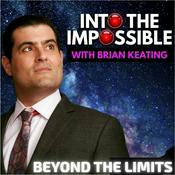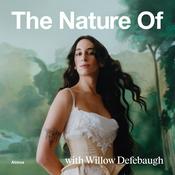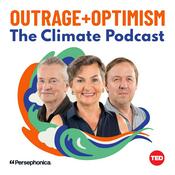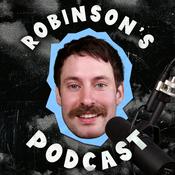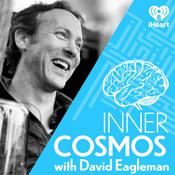84 episodes
- In this episode of Deep Seed, I sit down with Andrew Voysey, Chief Impact Officer at Soil Capital, to go beyond slogans and dig into what it actually takes to scale regenerative agriculture in a world built for short-term output.
We unpack why most farmers feel trapped, why markets alone won’t fix our food systems, and how credible impact measurement — paired with smart policy and aligned incentives — could unlock transition at scale.
Whether you’re a farmer, a food-chain professional, a policymaker, an investor, or someone who eats food every day (which is all of us), this conversation reframes regenerative agriculture as economic reality rather than idealistic aspiration.
In plain language and big ideas, we cover:
Why soil is a hidden systemic lever - and why degraded soil is behind so many global crises
The real reason farmers are stuck - risk, cashflow pressures, and fragile livelihoods
How Soil Capital is forging real economic pathways - paying farmers for measurable impact, not just good intentions
Why big companies actually care - resilience, supply-chain security, and risk management
Beyond carbon - how soil, biodiversity, water, and farm resilience can be credibly measured at scale
The limits of markets - why policy and public finance still matter
Headwinds and opportunities - political shifts, economic pressures, and the resilient core of the transition
This is not another “optimistic farming chat.” This is a real-world, systems-level, deeply practical conversation about how change actually happens when you remove the fantasy, face the bottlenecks, and structure incentives that work.
If you care about food, climate, landscapes, rural economies, or simply how the world actually works beneath the headlines, this episode is for you!
🎯 Topics Covered
Soil health, market incentives, regenerative practices, impact measurement, carbon vs. beyond carbon, agricultural economics, supply chain resilience, policy, and systems transformation.
—
This episode was produced in partnership with Soil Capital, a company accelerating the regenerative transition by financially rewarding farmers who improve soil health & biodiversity.
https://www.soilcapital.com/
—
Usefull Links:
ANDREW VOYSEY: LinkedIn
SOIL CAPITAL: https://www.soilcapital.com/
THE DEEP SEED PODCAST - link
—
Follow Us
• Instagram: @deep_seed_podcast
• LinkedIn: https://www.linkedin.com/company/deep-seed
• Email: [email protected]
Hosted on Ausha. See ausha.co/privacy-policy for more information. - Our food system is on the verge of collapse — but we can fix it.
In this episode, we’re joined by Tim Benton, one of the world’s leading experts on food security, to unpack the deep systemic drivers behind the crisis… and what a truly regenerative future could look like.
We cover:
Why the food system is fundamentally unsustainable
The 3 “lock-ins” keeping us stuck
How planetary boundaries apply to farming and diets
The myth of green growth
What gives Tim hope — and what needs to change now
This is one of the most powerful and important episodes we’ve recorded. If you care about the future of food, farming, or the planet, you need to hear this.
🎙️ Guest: Tim Benton - Professor of Ecology, Chatham House Research Director, and former UK Food Security Champion
💚 Official partner: Soil Capital - a company accelerating the transition to regenerative agriculture → www.soilcapital.com
📬 Stay connected:
Instagram → @deep_seed_podcast
LinkedIn → Deep Seed Podcast
Website → www.deepseedpodcast.com
Hosted on Ausha. See ausha.co/privacy-policy for more information. - What if every bite of cheap food you eat is secretly costing society triple the price you paid at checkout?
In this eye-opening episode, food systems expert Adele Jones (former Executive Director of the Sustainable Food Trust) pulls back the curtain on the true cost of our food. From soil health and ecosystem collapse to diet-related disease and skyrocketing healthcare costs, Adele explains how we’re already paying the true price of industrial farming. And it’s way more than what we spend at the supermarket!
But it’s not all bad news. Adele lays out a hopeful, inspiring roadmap to a regenerative food system where farmers are rewarded for improving soil, boosting biodiversity, and producing truly nutrient-dense food. We cover groundbreaking concepts like True Cost Accounting, the Global Farm Metric, and why livestock farming might just be part of the solution.
If you’ve ever wondered how to fix food, protect nature, and improve public health all at once: this episode is a must-listen! It’s one of the most mind-expanding conversations we’ve ever had.
⎯⎯⎯
🔍 Topics Covered
True Cost Accounting: the economic revolution hiding in plain sight
How food is much more expensive than it seems (but not at the checkout)
Regenerative agriculture vs. conventional farming
Why big food companies are (finally) waking up to soil and sustainability
Livestock farming: villain or ecosystem ally?
What if we paid farmers for nutrition per hectare instead of yield?
Feeding Britain regeneratively: is it possible? (Yes!)
Nutrient density, soil health, and the future of public health
Lessons from Bhutan: what a happiness-first food system looks like
The Global Farm Metric: a universal language for farm sustainability
How to make food and farming a political (and public) priority
⎯⎯⎯
Official partner: Soil Capital
-> a company accelerating the regenerative transition by financially rewarding farmers who improve soil health & biodiversity.
https://www.soilcapital.com/
Usefull Links:
ADELE JONES: https://www.linkedin.com/in/adelejones/
SUSTAINABLE FOOD TRUST: https://sustainablefoodtrust.org/
The Hidden Cost of UK FOOD - link
Follow Us
• Instagram: @deep_seed_podcast
• LinkedIn: https://www.linkedin.com/company/deep-seed
• Email: [email protected]
Hosted on Ausha. See ausha.co/privacy-policy for more information. - In one of the driest, most degraded landscapes in Europe, farmer and agroforester Antonio Coelho has built 60 cm of fertile topsoil, raised organic matter to 7.4%, and slashed irrigation by 85% - all in just six years!
In this #REWIND episode, Antonio shares his deeply inspiring journey into entropic agroforestry, a form of regenerative agriculture that mimics forest ecosystems to grow food, restore land, and rebuild water cycles. He explains how complex, layered polycultures can outcompete monocultures - not just ecologically, but economically too - if we shift how we define productivity.
You’ll learn:
Why dense, multi-species systems don’t compete — they cooperate
How to retain water and thrive even with 8-month droughts
What it means to feed the soil first, not just the crop
Why economic models must account for real planetary costs
How biomass, pruning, and photosynthesis create energy loops that regenerate land over time
This episode challenges conventional logic about competition, inputs, and profitability — and offers a bold, hopeful vision for the future of farming.
🎧 Tune in now and see why this is Deep Seed’s most-watched episode on YouTube yet. To see Antonio’s farm and the system in action, head to our YouTube channel for the full visual experience.
If you enjoy this episode, leave a rating or share it with someone who still thinks farming in the desert is impossible ❤️
-
This episode was made in partnership with Soil Capital - www.soilcapital.com
Hosted on Ausha. See ausha.co/privacy-policy for more information. Rewind #10 - how to bring a river BACK TO LIFE with Regenerative Agriculture [SILVIA QUARTA]
2025/12/16 | 17 mins.What if you could bring a dead river back to life by working with farmers, not against them?
In this powerful #REWIND episode, Silvia Quarta shares the story of a forgotten valley in one of Europe’s driest regions, where springs stopped flowing, wells ran dry, and the river disappeared. But through radical listening, community trust, and regenerative agriculture, a new vision is starting to emerge.
Rooted in hope, soil, and local food systems.
This episode is about reimagining what rural life can be, and showing that farmers, shepherds, and citizens can become stewards of large-scale ecological restoration.
🌱 Topics covered:
• Community-led ecosystem restoration
• Water retention and soil regeneration
• Rural resilience and land abandonment
• Regenerative agriculture as a water solution
• Local food systems and consumer connection
• Working with farmers to restore landscapes
• Building collective hope in degraded regions
⸻
This episode was made in partnership with Soil Capital ❤️ www.soilcapital.com
Hosted on Ausha. See ausha.co/privacy-policy for more information.
More Science podcasts
Trending Science podcasts
About Deep Seed - Regenerative Agriculture
Welcome to the Deep Seed Podcast, your ultimate source for all things regenerative agriculture, soil health, and ecosystem restoration!
Join your host, Raphaël, on an exciting journey into the heart of sustainable farming and environmental resilience. The podcast is packed with inspiring conversations with regenerative farmers, cutting-edge innovators, and leading experts who are pioneering the movement towards a more regenerative food system.
Whether you’re a passionate advocate for sustainability, a professional in agriculture or environmental science, or just curious about the future of our food systems, the Deep Seed Podcast is your gateway to the vibrant world of regenerative agriculture.
Key topics discussed include:
Agroecology and its role in creating sustainable food systems
The power of agroforestry in boosting biodiversity and productivity
How carbon farming can fight climate change while benefiting farmers
The benefits of no-till farming for soil health and erosion prevention
Holistic grazing practices that restore ecosystems and enhance animal welfare
Crop rotation and polyculture for nutrient-rich soils and resilient farms
Exploring the potential of food forests and other nature-based solutions
The critical link between soil microbiology and plant health
Restoration agriculture and the future of land regeneration
Climate solutions that leverage regenerative practices to sequester carbon
Promoting biodiversity through sustainable farming approaches
Insights into the importance of sustainable diets and their environmental impact
Rewilding and its role in ecosystem restoration and preservation
Produced in partnership with Soil Capital, a leader in supporting regenerative agriculture and rewarding farmers for improving soil health, this podcast is a must-listen for anyone interested in sustainable farming and climate action.
Get in touch with me LinkedIn - Raphael Esterhazy
Hosted on Ausha. See ausha.co/privacy-policy for more information.
Podcast websiteListen to Deep Seed - Regenerative Agriculture, The Naked Scientists Podcast and many other podcasts from around the world with the radio.net app
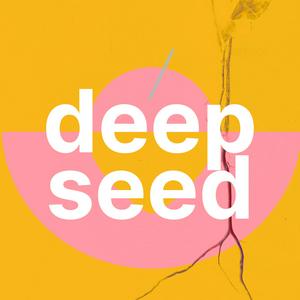
Get the free radio.net app
- Stations and podcasts to bookmark
- Stream via Wi-Fi or Bluetooth
- Supports Carplay & Android Auto
- Many other app features
Get the free radio.net app
- Stations and podcasts to bookmark
- Stream via Wi-Fi or Bluetooth
- Supports Carplay & Android Auto
- Many other app features


Deep Seed - Regenerative Agriculture
Scan code,
download the app,
start listening.
download the app,
start listening.















